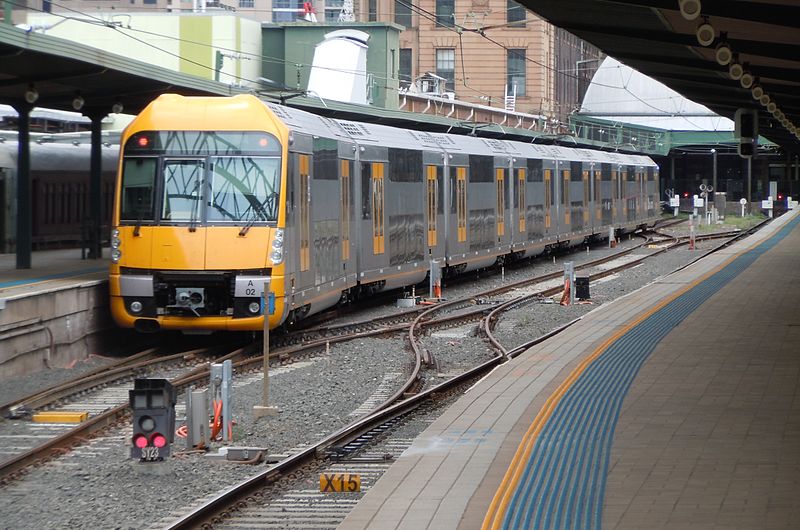 |
| A Waratah Train. Photo from Wikipedia |
This delivery was important and urgent not only because these carriages are an essential upgrade of the rolling stock. They will result in more carriages on the tracks, but also will allow the retirement of older models.
According to Wikipedia, the train design is based on the Millenium trains. Given the extraordinary difficulties encountered with the Millenium trains shortly after their launch, perhaps we should have expected some drama.
 |
| Millenium Train. Photo from Wikipedia |
 |
| One of the old carriages. Photo from Wikipedia |
Additionally, there are only 498 carriages in the L, R and S sets, meaning that the number of active carriages will be increased by 128.
Whether this will lead to an increase of the number of services does not appear to be clear, as of course there will be staffing and other cost implications.
The concern is that the process has been so fraught with delay and drama it has become a "I'll believe it when I see it" kind of project (like so, so many under the Labor Government).
The Herald reported today that the trains may be entering service within two months, but that Downer EDI (the manufacturer) has released the trains to RailCorp before all the work on them is completed.
If RailCorp is not satisfied with the trains or if significant operational issues become apparent, then all hell could break loose.
Downer has apparently already anticipated a $440 million loss on the whole project.
The project was another of those public private partnerships that have been such a disaster over the last decade (the Cross City Tunnel and Airport Link spring to mind). Perhaps counter-intuitively, the private stakeholder having awful financial results is not a good thing.
If companies can't make a financial success of these partnerships, then they will quickly lose interest in being involved, meaning the government is going to have to not only manage the project (something governments at all levels don't have a great record with) but also absorb all the financial risk.
The question is, of course, WHY have these projects been a disaster? Is it the government simply picking the lowest bid - a bid that they know the company cannot possibly hope to meet and make a profit?
An Inquiry into Public Private Partnerships was conducted by the Public Accounts Committee in 2005 and 2006. The report noted that "the Government’s aim is not to maximise risk transferred to the private sector" but rather to "optimise the allocation of risks to the public and private sectors according to which party is best able to manage these risks."
That's all good and well, but it seems clear that this goal has not been achieved to date.
The position that the Coalition government finds itself in is that the trains are now arriving on their watch. The trains will be an improvement, and should be recognized as such, although we can all expect to hear a great deal about how long ago they were promised.
That said, the government is going to have to have a close look at how we manage major contracts like this, whether for infrastructure, vehicles or the like,
There are probably very few people who think that private companies should not be involved at all. Government should stick to government where possible, and (where appropriate) use private companies to produce and build.
But these arrangements need to be mutually beneficial. If NSW is seen as a place where the lowest bidder wins and then inevitably makes a crushing loss on the project, we will lose the top bidders, to everyone's detriment.
It remains to be seen whether the Coalition government is any better at dealing with business to get things built. If so, it could be the starkest distinction between this government and the one before it.
No comments:
Post a Comment